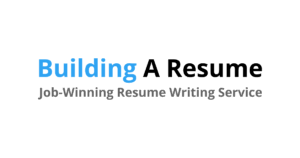The Evolving Role of AI in Resume Writing
In the rapidly advancing landscape of technology, artificial intelligence (AI) is making its presence felt in various facets of our lives, including the realm of resume writing. As we navigate through the digital era, the question arises: are AI-written resumes the future of resume writing? While AI certainly brings advantages to the table, it’s essential to examine the benefits and limitations to better understand its role in shaping the future of this crucial aspect of job seeking.
Advantages of AI-Written Resumes:
- Efficiency and Speed:
AI-written resumes excel in efficiency and speed.With the ability to analyze vast amounts of data in a fraction of the time it takes a human, AI can swiftly generate tailored resumes based on job descriptions, industry trends, and best practices. This efficiency is particularly beneficial for job seekers looking to streamline the application process. - Customization and Optimization:One of the notable advantages of AI is its capacity to customize resumes for specific roles. By identifying keywords and phrases relevant to a particular industry or job, AI can optimize resumes for better visibility within applicant tracking systems (ATS). This optimization increases the chances of a resume standing out in a competitive job market.
- Objective Analysis:
AI operates on data and algorithms,eliminating human biases in the initial stages of resume screening. This objectivity allows AI to focus on a candidate’s skills and qualifications, providing a fair assessment without the potential for subjective judgments. - Continuous Improvement: AI systems can learn and adapt over time. Through user feedback and ongoing updates, these systems can refine their algorithms, improving the quality of generated resumes. This adaptability ensures that AI stays relevant in an ever-changing job market.
Limitations of AI-Written Resumes:
- Lack of Personal Touch:While AI can efficiently analyze data,
it often lacks the personal touch that a human touch can bring to a resume. Crafting a compelling narrative that reflects a candidate’s personality and unique experiences is an area where AI may fall short.
- Overemphasis on Keywords:AI tends to optimize resumes heavily for keywords to pass through ATS filters. However, an excessive focus on keywords may lead to resumes that sound robotic and lack the authenticity that human-written resumes often possess.
- Limited Understanding of Nuances: Nuances, context, and industry-specific jargon can be challenging for AI to capture accurately. Human writers, with their contextual understanding, may better convey the subtleties that make a resume truly effective.
- Risk of Generic Content: AI-generated resumes might run the risk of sounding generic. As AI systems follow patterns and templates, the resulting resumes may lack the uniqueness that helps candidates stand out in the eyes of hiring managers.
In conclusion, while AI-written resumes offer efficiency and objectivity, they are unlikely to completely replace human-written resumes. The future of resume writing might involve a hybrid approach where job seekers use AI tools to create a baseline resume, leveraging the speed and optimization capabilities, and then infuse it with a personalized touch to showcase their individuality. Striking the right balance between AI assistance and human creativity is likely to define the future landscape of resume writing. As technology continues to evolve, it is the synergy of human insights and AI capabilities that will contribute to creating compelling and impactful resumes.

